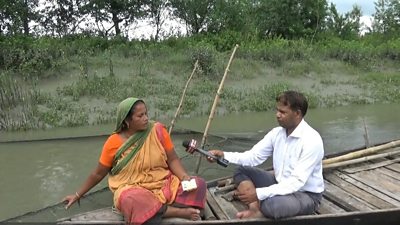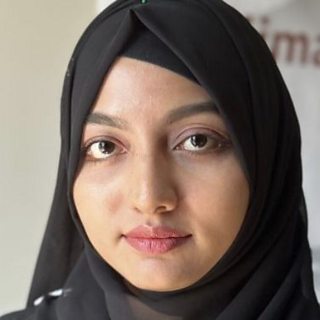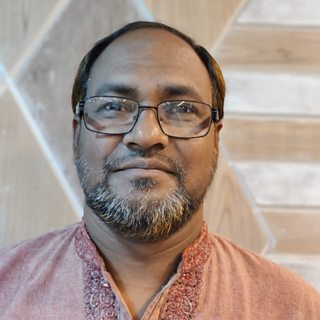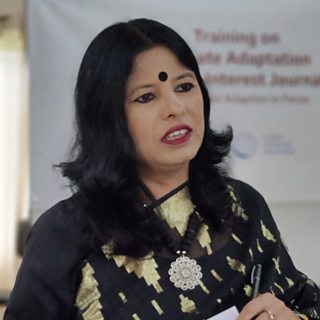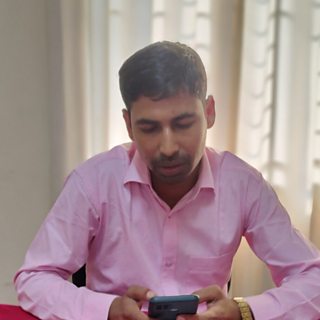With support from the we trained journalists and content producers to effectively report on how communities are leading their own way on climate adaptation.
Bangladesh is facing real and growing impacts from climate change. Increasingly severe tropical cyclones are estimated to cost the country about $1 billion US each year and the World Bank predicts that by 2050, the country will have lost one-third of its agricultural GDP, and will have 13 million internally displaced people because of climate change and extreme weather.
Locally-led adaptation - solutions that are created, driven and implemented by local communities – will be essential in helping vulnerable communities adapt and cope with the fast-changing environment around them.
The project
This year, together with the Global Center on Adaptation, we worked with 40 journalists and 20 young communicators from six districts in northern and southern belts of Bangladesh. These are areas highly vulnerable to changes in climate and we provided training on how to report on locally-led efforts to adapt to these changes.
Our research has shown that adaptation efforts by communities and individuals in Bangladesh, often aren’t shared. Local media tend to focus on climate-related disasters and international negotiations on climate change. Young people on social media also present an opportunity to share how communities are adapting to the changing climate, reaching new audiences.
Our training focused on the role of public interest journalism, sourcing data and information from government and other stakeholders, technical aspects of high-quality digital content production, and how to package stories for highest impact.
By November 2023, some 36 stories had been aired on local broadcast stations and 20 pieces of social media content had been published – reaching millions of people across the country.
Hear from some of our trainees on how they found the mentoring and training and support:
"After having the ����ý Media Action training on climate change, I have started taking audio-visual production more seriously and now I regularly upload content. My content on climate changes, especially on locally-led adaptation techniques, give voices to people and communities who are affected. I feel very happy when my content is appreciated, and people in my community encourage me to make more such content. Being a female content creator from a hard-to-reach area in Bangladesh is not very easy. People still have many stereotypes against females who post online. However, now when I am seen capturing the impact of climate change on my community and highlighting different adaptation initiatives by local people, the situation has improved, and I am grateful to ����ý Media Action for that."
"Both training and mentoring have greatly helped me in my growth. Now when you want to report on any topic, it comes to mind, does it involve the impact of climate change? Climate change seems to have penetrated my brain.
Today was a great experience. When I went to cover a story today, I never uttered the word ‘climate change and its effects’. People themselves are saying that they want to escape the effects of climate change and as a journalist, I am happy to highlight the plight of ordinary people."
"I had no idea about climate adaptation by local people before participating in the training. But now I am finding so many climate adaptation stories for making news around me, which is amazing. To feel the importance of local people's adaptations for their survival in the situation of climate change, I think as a journalist it is my responsibility to find adaptation stories for the news and I am trying my best to do so."
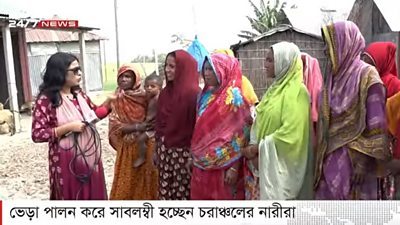
"We have always worked but now it seems that the eyes have been opened. Thanks to ����ý Media Action for this....Climate change issues are coming up very easily now in my reporting and reporting on them is also becoming easier. It is a matter of pleasure, now I can bring up new issues like climate change and adaptation. It's great that many people's lives can change because of these reports."
We have shared these powerful stories at COP28 – watch our film!
This project was conducted in partnership with the Global Center on Adaptation and funded by UK International Development. To read the full 100 Voices of the Vulnerable, please see the Global Center on Adaptation's (leads to third-party site).
